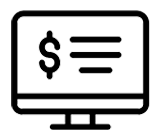A broker used to be the most common way to sell your business. You would speak with a broker or list your business on a broker website, then individuals or companies would submit Letters of Intent (LOI’s) outlining their offer.
If you speak to a broker now, they will say that they can get you a higher deal than going to aggregators directly because they can reach both non-aggregator buyers and aggregator buyers and negotiate on your behalf for the best deal.
However, because so much money has been raised by aggregators now, even if you go through a broker you will likely end up selling to an aggregator anyway. This is because aggregators offer good valuations, have the cash ready to buy and can close the deal much faster.
So by using a broker you will pay them 7% to 10% of the deal out of your pocket. They will claim that they can get a better deal from the aggregator to offset this, but in reality, the aggregators have bought so many Amazon businesses now that they have pretty robust formulas for valuing your business and will not negotiate so much that it would offset these broker fees.
Plus when you sign up to a broker you will have to sign an exclusivity agreement for 6 months. That means that if you found an aggregator in that time that was not through your broker, the broker would still get 10% of your money even though they didn’t do anything.
We would recommend doing your research, looking at the top aggregator websites and following the steps on this website for getting your business ready for a sale. Then reaching out to a couple of the aggregators directly.
To see which Amazon aggregators would be most interested in your business, take our short three-step quiz.








